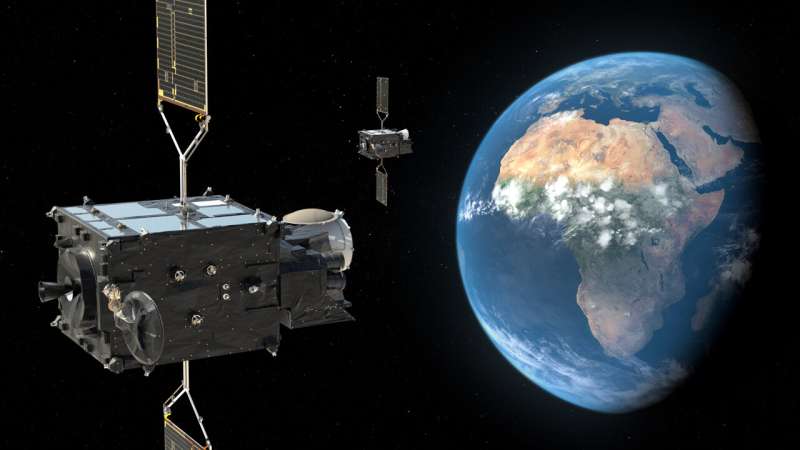Is over-eating to blame for bulges in Milky Way bar
Sunday, 11 September 2022 09:52 A new simulation conducted on the world's most powerful supercomputer dedicated to astronomy has produced a testable scenario to explain the appearance of the bar of the Milky Way. Comparing this scenario to data from current and future space telescopes will help clarify the evolution of our home Galaxy.
Astronomy is revealing the structure of the Milky Way Galaxy in which we live in incre
A new simulation conducted on the world's most powerful supercomputer dedicated to astronomy has produced a testable scenario to explain the appearance of the bar of the Milky Way. Comparing this scenario to data from current and future space telescopes will help clarify the evolution of our home Galaxy.
Astronomy is revealing the structure of the Milky Way Galaxy in which we live in incre OneWeb and HD Hyundai Avikus to advance marine technology by unlocking the potential of LEO connectivity
Sunday, 11 September 2022 09:52 OneWeb, the low Earth orbit (LEO) satellite communications company, and HD Hyundai Avikus, a world leader in advanced autonomous ship, has announced the signing of a Memorandum of Understanding (MoU).
This agreement, signed during a dedicated ceremony at SMM Hamburg 2022, signifies a new partnership to explore opportunities for advanced LEO satellite technology to support the next generati
OneWeb, the low Earth orbit (LEO) satellite communications company, and HD Hyundai Avikus, a world leader in advanced autonomous ship, has announced the signing of a Memorandum of Understanding (MoU).
This agreement, signed during a dedicated ceremony at SMM Hamburg 2022, signifies a new partnership to explore opportunities for advanced LEO satellite technology to support the next generati Iridium announces 9th SpaceX launch
Sunday, 11 September 2022 09:52 Iridium Communications Inc. (NASDAQ: IRDM) reports it has reached an agreement with SpaceX to launch up to five of the company's remaining ground spare satellites from the Iridium NEXT program, on its Falcon 9 rocket.
Known as Iridium-9, the launch is planned to take place at Vandenberg Space Force Base in mid-2023. Earlier this year, Iridium celebrated the 25th anniversary of the first la
Iridium Communications Inc. (NASDAQ: IRDM) reports it has reached an agreement with SpaceX to launch up to five of the company's remaining ground spare satellites from the Iridium NEXT program, on its Falcon 9 rocket.
Known as Iridium-9, the launch is planned to take place at Vandenberg Space Force Base in mid-2023. Earlier this year, Iridium celebrated the 25th anniversary of the first la Foundation model improves accuracy for remote sensing image interpretation
Sunday, 11 September 2022 09:52 A new foundation model dubbed RingMo has been developed to improve accuracy for remote sensing image interpretation, according to the Aerospace Information Research Institute (AIR), Chinese Academy of Sciences (CAS).
Remote sensing images has been successfully applied in many fields, such as classification and change detection, and deep learning approaches have contributed to the rapid dev
A new foundation model dubbed RingMo has been developed to improve accuracy for remote sensing image interpretation, according to the Aerospace Information Research Institute (AIR), Chinese Academy of Sciences (CAS).
Remote sensing images has been successfully applied in many fields, such as classification and change detection, and deep learning approaches have contributed to the rapid dev CAPSTONE enters safe mode during trajectory correction maneuver
Sunday, 11 September 2022 07:38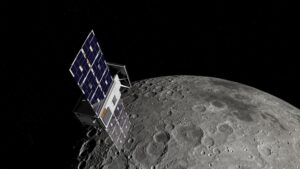
A NASA-funded cubesat mission to the moon has gone into safe mode after suffering a problem during a trajectory correction maneuver, the agency said Sept. 10.
The post CAPSTONE enters safe mode during trajectory correction maneuver appeared first on SpaceNews.
Sierra Space and U.S. military to explore using Dream Chaser for point-to-point cargo delivery
Saturday, 10 September 2022 19:04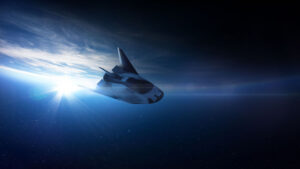
Sierra Space signed an agreement with the U.S. Transportation Command to explore using Dream Chaser for point-to-point delivery of military cargo
The post Sierra Space and U.S. military to explore using Dream Chaser for point-to-point cargo delivery appeared first on SpaceNews.
NASA's Webb catches Tarantula Nebula
Saturday, 10 September 2022 14:20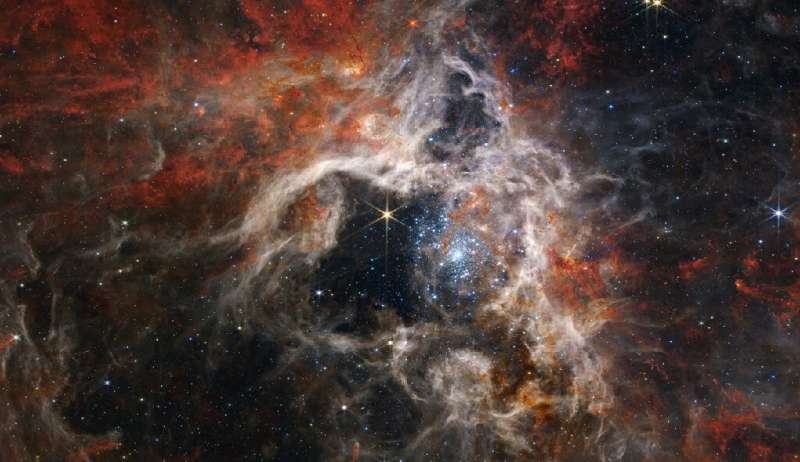
A stellar nursery nicknamed the Tarantula Nebula has been captured in crisp detail by NASA's Webb telescope, revealing hitherto unseen features that deepen scientific understanding, the agency said Tuesday.
Officially known as 30 Doradus, the region of space is characterized by its dusty filaments that resemble the legs of a hairy spider, and has long been a favorite for astronomers interested in star formation.
Thousands of young stars, distant background galaxies, and the detailed structure of the nebula's gas and dust structures were viewable for the first time thanks to Webb's high resolution infrared instruments.
SciTec wins $272 million Space Force contract for data analytics software
Saturday, 10 September 2022 10:44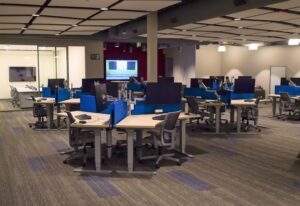
SciTec, a small business based in Princeton, New Jersey, won a $272 million contract to develop software to analyze data collected by the U.S. military’s early-warning infrared satellites.
The post SciTec wins $272 million Space Force contract for data analytics software appeared first on SpaceNews.
U.S. to introduce U.N. resolution on ASAT testing ban
Saturday, 10 September 2022 10:07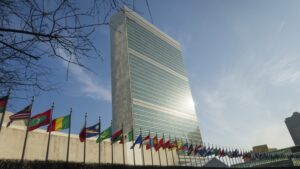
The United States will introduce a resolution at the United Nations General Assembly this month calling for a halt on direct-ascent anti-satellite (ASAT) testing.
The post U.S. to introduce U.N. resolution on ASAT testing ban appeared first on SpaceNews.
Why go back to the Moon?
Saturday, 10 September 2022 09:06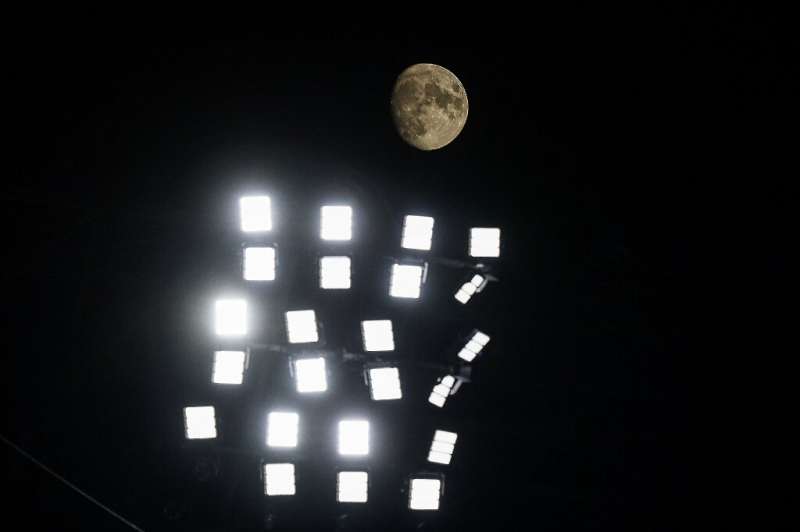
On September 12, 1962, then US president John F Kennedy informed the public of his plan to put a man on the Moon by the end of the decade.
It was the height of the Cold War and America needed a big victory to demonstrate its space superiority after the Soviet Union had launched the first satellite and put the first man in orbit.
"We choose to go to the Moon," Kennedy told 40,000 people at Rice University, "because that challenge is one that we are willing to accept, one we are unwilling to postpone, and one which we intend to win."
Sixty years on, the United States is about to launch the first mission of its return program to the Moon, Artemis. But why repeat what has already been done?
Criticism has risen in recent years, for example from Apollo 11 astronaut Michael Collins, and the Mars Society founder Robert Zubrin, who have long advocated for America to go directly to Mars.
FAA and NTSB reach new agreement on commercial space investigations
Friday, 09 September 2022 22:53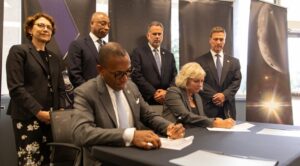
The Federal Aviation Administration and the National Transportation Safety Board (NTSB) have signed a new agreement outlining their roles investigating commercial space accidents.
The post FAA and NTSB reach new agreement on commercial space investigations appeared first on SpaceNews.
Commerce and Defense Departments sign agreement on space traffic management cooperation
Friday, 09 September 2022 21:52
The Departments of Commerce and Defense have signed an agreement to cooperate on transferring responsibility for civil and commercial space traffic management.
The post Commerce and Defense Departments sign agreement on space traffic management cooperation appeared first on SpaceNews.
Report: Ligado’s wireless network will interfere with Iridium and some GPS services
Friday, 09 September 2022 19:24
An independent review of Ligado’s planned deployment of a terrestrial wireless network concluded that it will likely interfere with GPS signals and with space-based communications services provided by Iridium.
The post Report: Ligado’s wireless network will interfere with Iridium and some GPS services appeared first on SpaceNews.
LEO satellite cluster to provide secure digital military intelligence from 2024
Friday, 09 September 2022 16:09 BAE Systems is set to launch its first multi-sensor satellite cluster into low Earth orbit in 2024 to deliver high-quality information and intelligence in real time from space to military customers. Known as AzaleaTM, the group of satellites will use a range of sensors to collect visual, radar and radio frequency (RF) data, which will be analysed by on board machine learning on edge processors t
BAE Systems is set to launch its first multi-sensor satellite cluster into low Earth orbit in 2024 to deliver high-quality information and intelligence in real time from space to military customers. Known as AzaleaTM, the group of satellites will use a range of sensors to collect visual, radar and radio frequency (RF) data, which will be analysed by on board machine learning on edge processors t 

